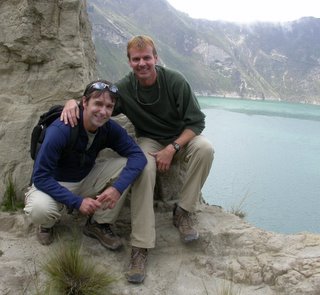Another positve feedback loop in global warming
It has always seemed to me that the most worrisome part of global warming is the positive feedback loops -- changes that feed off of global warming and contibute to it, thereby accelerating what would have been a gradual, linear trend.
Of those loops, the worst has seemed to be the melting to the Russian tundra, which up until now has kept under seal billions of tons of methane, which is 20 times more effective as a greenhouse gas than CO2.
It turns out that the Russian tundra is not the only vast, frozen earth surface that contains billions of tons of methane. The ocean floors do as well.
Of those loops, the worst has seemed to be the melting to the Russian tundra, which up until now has kept under seal billions of tons of methane, which is 20 times more effective as a greenhouse gas than CO2.
It turns out that the Russian tundra is not the only vast, frozen earth surface that contains billions of tons of methane. The ocean floors do as well.
Scientists have just released video showing how, for the first time, they have been able to measure these natural up-wellings to tell whether, if large amounts of this methane ever thawed out from its deep sea beds, it would reach the atmosphere, rather than being absorbed in the water, and thus make the earth even hotter.
The findings of oceanographer Ira Leifer et al, published in a strictly peer-reviewed scientific journal, are that it would do just that.
According to the AP article, there are millions of methane bubbles right now off the coast of Santa Barbara coming up from a vast under-sea resevoir and releasing into the atmosphere.


<< Home